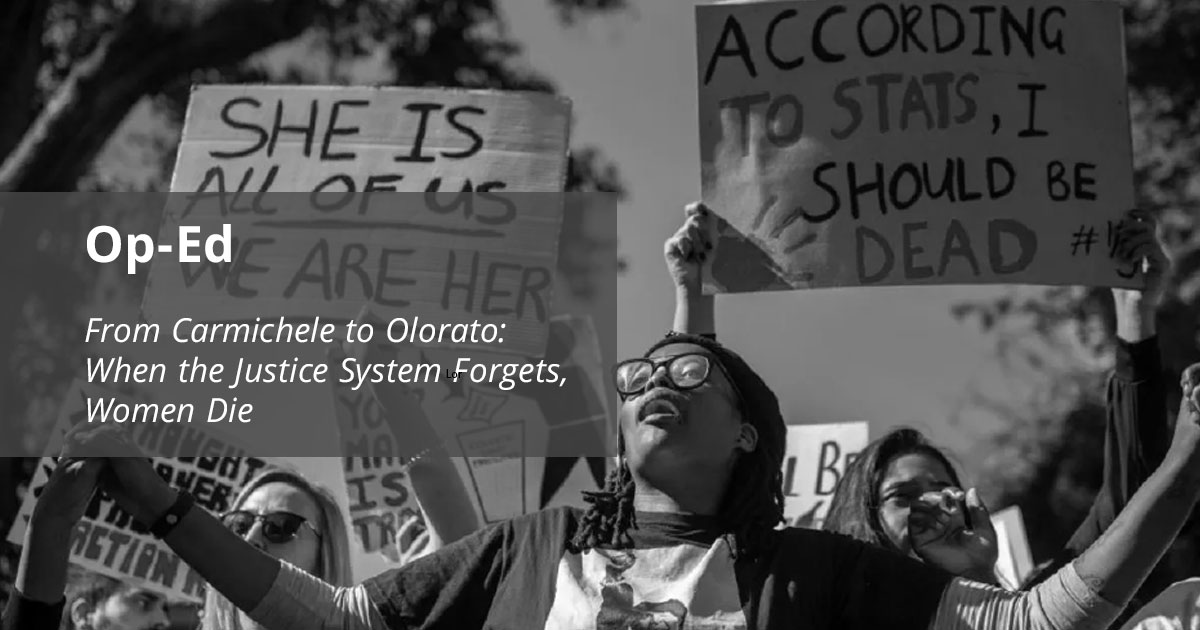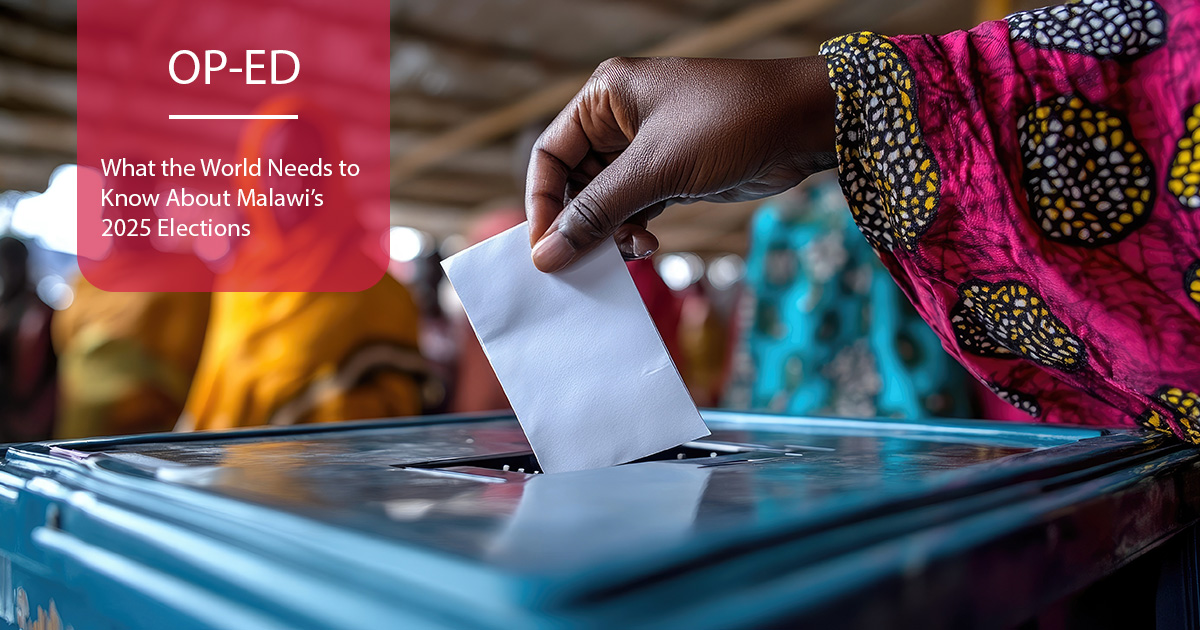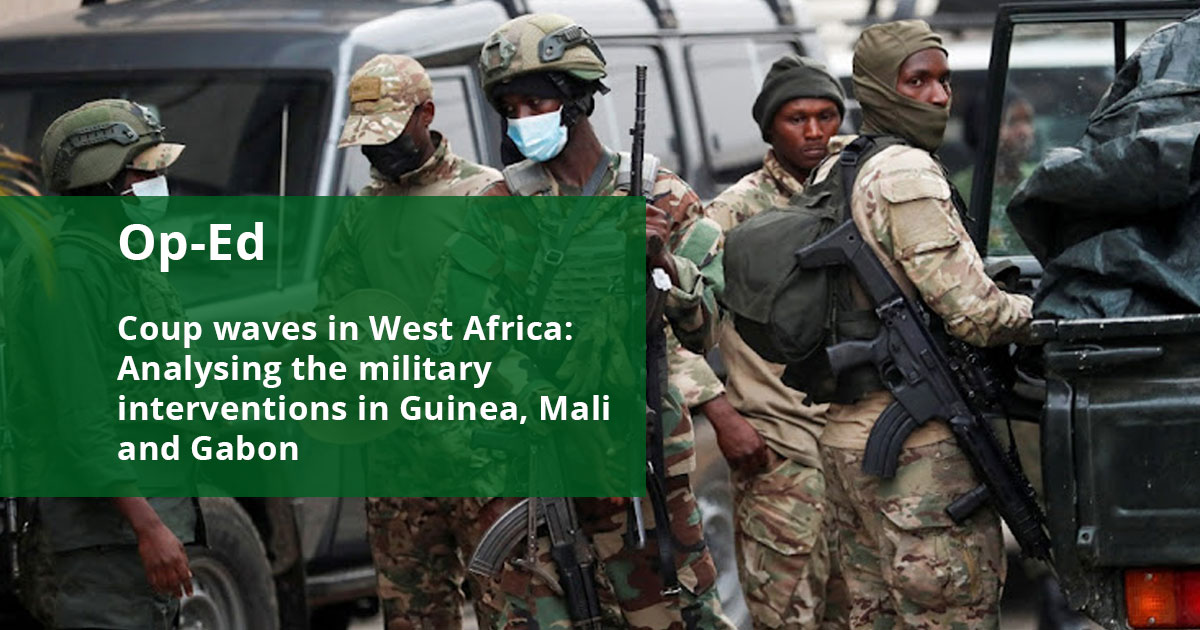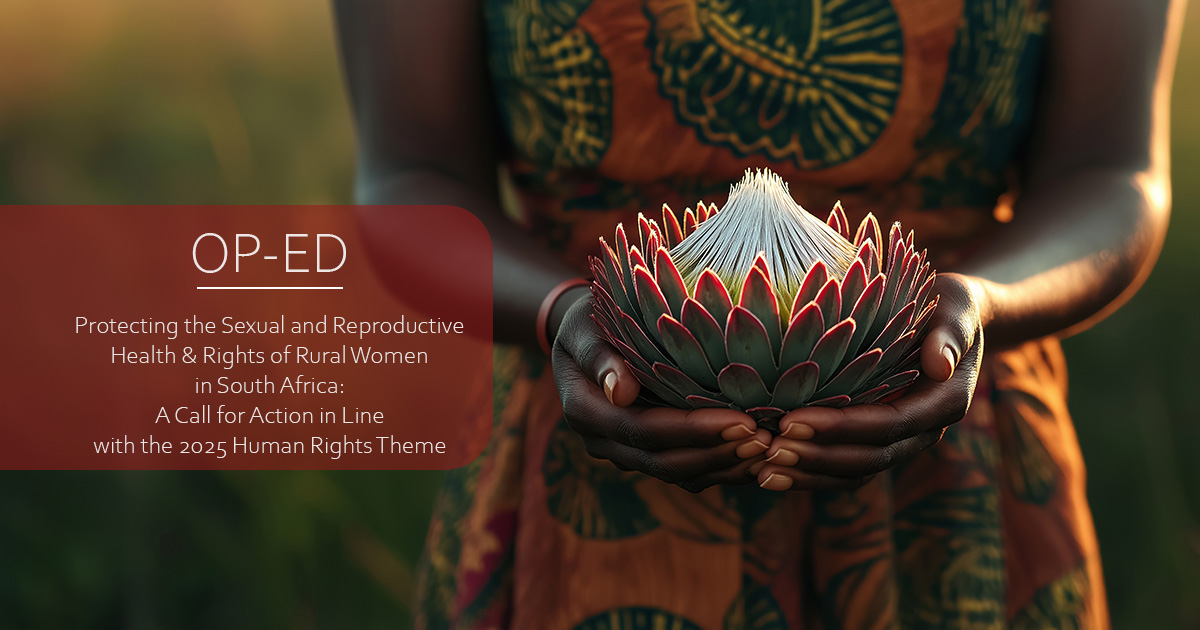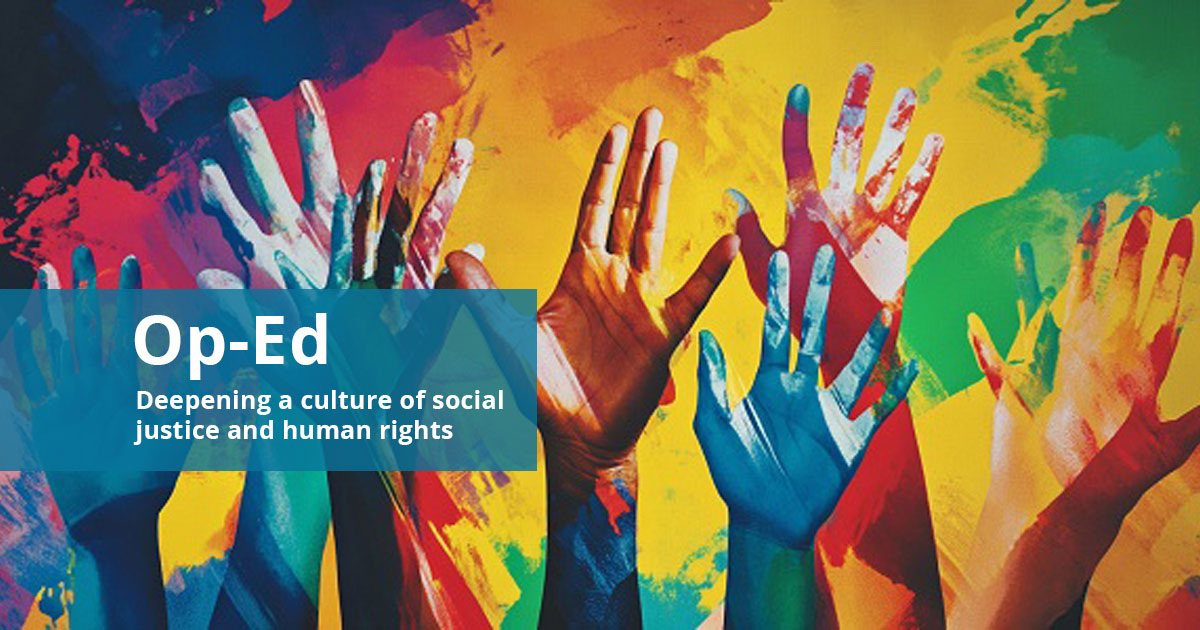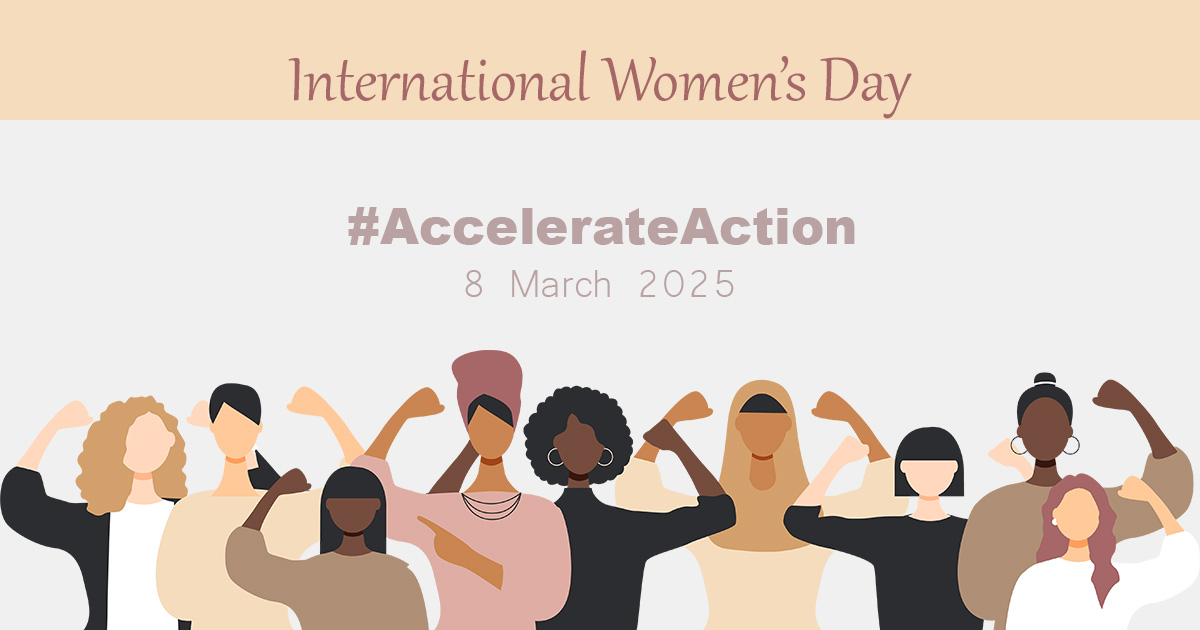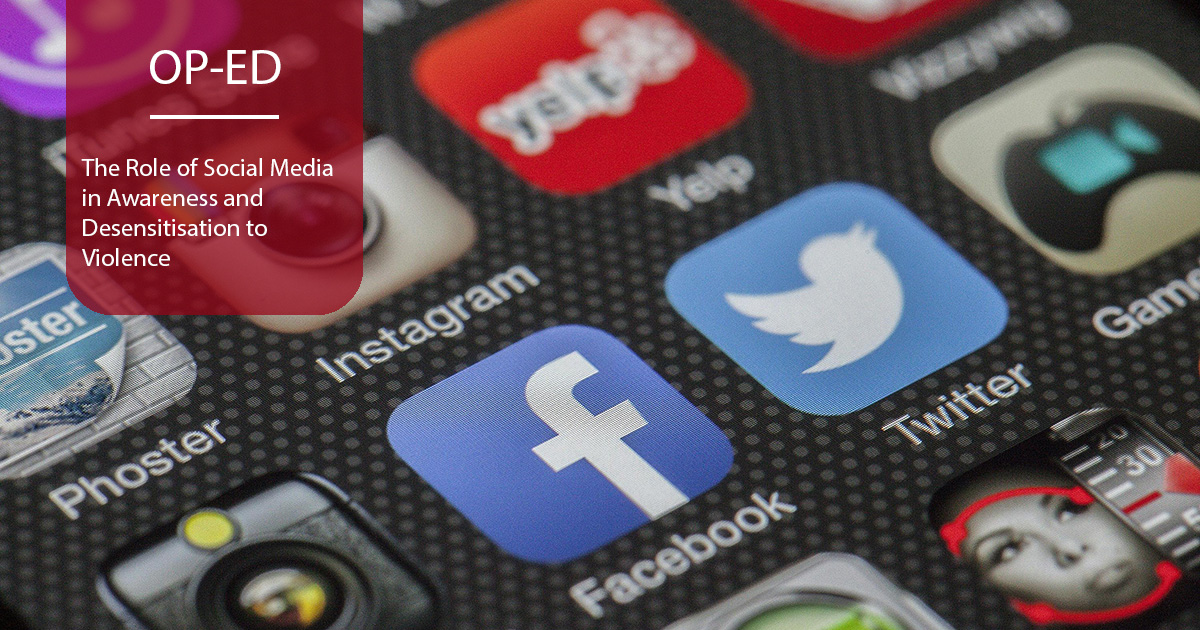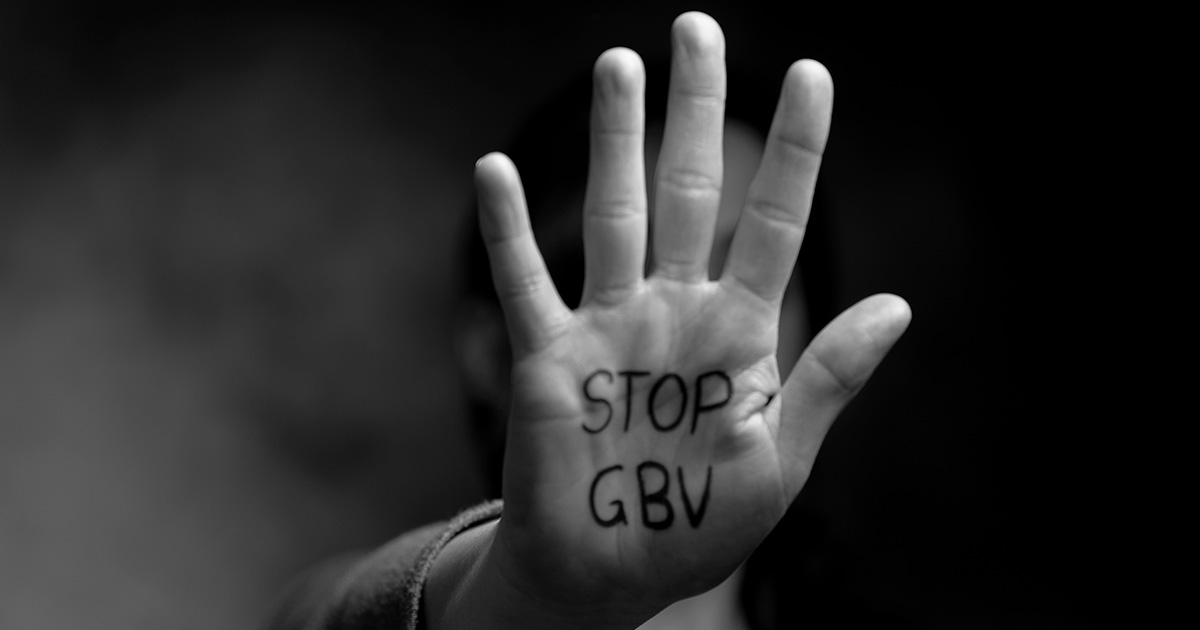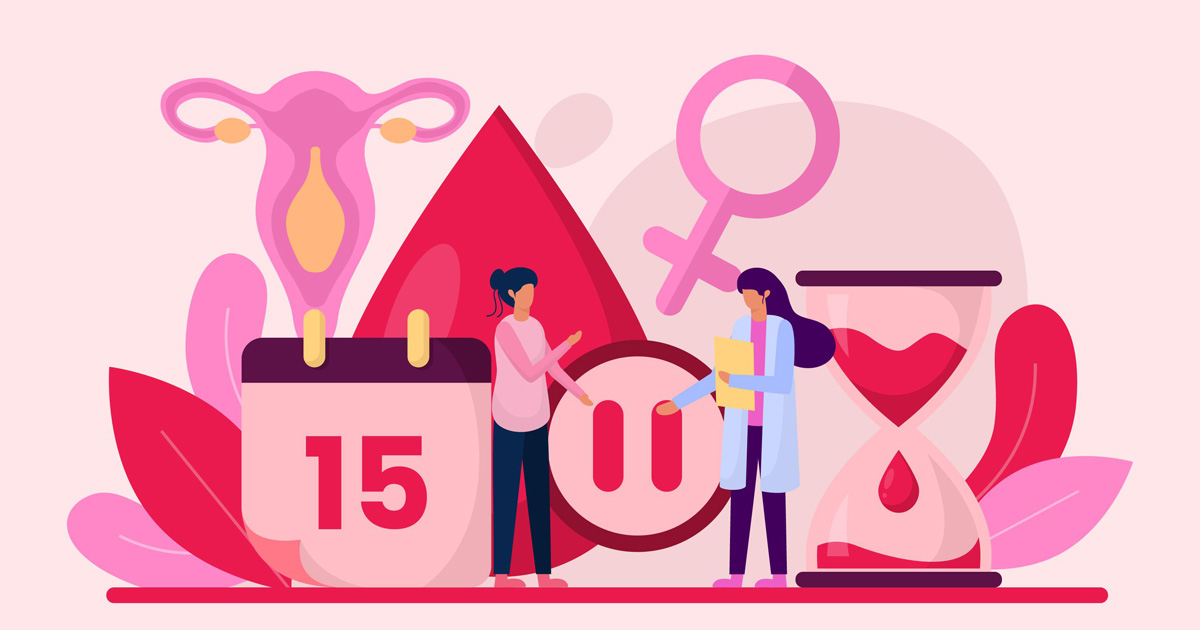- Details
The recent murder of Olorato Mongale is not an isolated tragedy. It is a painful reminder that South Africa’s criminal justice is failing and refusing to learn from its own history. Recent reports suggest that Olorato was a victim of a syndicate. Her death has now been confirmed as yet another femicide in a country with some of the highest rates of gender-based violence in the world. Disturbingly, the men now implicated in her abduction and killing were previously arrested and released on bail on kidnapping charges.
- Details
Introduction
The upcoming general elections in the Republic of Malawi, scheduled for September 2025, have garnered significant interest among stakeholders in the region. These elections signify a pivotal moment in the nation’s democratic journey. In the lead-up to the polls, citizens of Malawi have raised concerns about misgovernance, corruption, and the current administration's failure to address escalating economic challenges which has resulted in extreme poverty levels in the country. These issues are considered critical and defining to the outcome of the upcoming elections. This paper is a product of our interviews and stakeholder engagement with citizens and Civil Society Organisations (CSOs) in Malawi. Below are key issues about the political context, legal framework, the Malawi Electoral Commission (MEC), voter registration, political parties, campaign finances, the role of media, and civil society that African citizens should know as they pay close attention to Malawi’s 2025 elections.
- Details
As of August 2023, with a total of 220, the African continent is regarded as the region that has experienced the highest number of military coups, hereafter, referred to as coups.[1] In fact, The Economist speculates that the continent will continue to witness an increase in the number of coups.[2] Since 2020, two specific regions of Africa that are almost considered as the ‘epicentre’ of coups are the Sahel and West regions. Exacerbated by corruption, authoritarian rule, entrenched social injustices, and fragile economies, the situation in some states has compelled the military to overthrow presidents and seize power. This has been the case in Guinea, Mali and Gabon where presidents have clung to power for too long, stifling the progress of democratic governance. However, a troubling pattern emerged in the aftermath of coups, as military leaders are often reluctant to relinquish power and organise democratic elections that would allow citizens to choose their representatives.
- Details
By Belinda Matore, project officer in the Expression, Information and Digital Rights Unit at the University of Pretoria’s Centre for Human Rights.
Advocacy has found a powerful ally in social media. Platforms like TikTok, X and Facebook have transformed local injustices into national conversations, often within hours. Yet as the line between activism and exploitation grows increasingly blurred, we must ask: at what cost does awareness come? The tragic case of Cwecwe, a seven-year-old girl who was allegedly sexually assaulted at Bergview College in the Eastern Cape, serves as a stark reminder of how digital activism can devolve into digital exploitation.
- Details
Dr Sindiso N. Nkomo and Dr Lydia T. Chibwe
March 21st was declared by the Democratic Government of South Africa as Human Rights Day. The annual commemoration of this day provides an opportunity for taking stock on the progress made in the promotion and protection of human rights in the country. To commemorate this day this year, we believe it is important to focus on the progress made by Government in protecting the sexual and reproductive health (SRHR) and rights of marginalised groups such as rural women.
- Details
By: Belinda Matore
Historical Significance of 21 March
Every year on 21 March, South Africa commemorates Human Rights Day, a day that serves as both a tribute to the struggles of the past and a reminder of the ongoing quest for equality, justice, and dignity for all. This date is deeply rooted in the history of the Republic of South Africa, marking the anniversary of the Sharpeville Massacre of 1960 which was a pivotal moment in South Africa’s fight against apartheid.
- Details
As we commemorate International Women’s Day (IWD) 2025 on March 8th, the theme #AccelerateAction calls us to step forward with urgency and solidarity to tackle the systemic barriers that continue to hinder gender equality, especially in the digital age. In many parts of the world, the digital divide disproportionately affects women, limiting their access to opportunities and preventing them from fully participating in the digital economy. In Africa, these challenges are even more pronounced, with deeply entrenched inequalities in access, literacy, safety, and opportunity. This year, as we observe IWD 2025, it is important to not only reflect on the progress made but also intensify efforts to overcome the persistent barriers preventing women from fully benefiting from the digital world.
- Details
Belinda Matore & Tendai Mbanje
Ethical considerations must be considered when sharing graphic content online. While documenting and exposing human rights violations is essential, responsible reporting is necessary to ensure that the dignity of victims is preserved.
Social media has emerged as a powerful tool for exposing human rights violations, amplifying voices that often go unheard. Incidents of extreme violence, abuse, and inhumane treatment are usually brought to public attention through widely circulated videos, forcing authorities and society to confront these issues. However, the widespread sharing of such content raises an important debate: Does the exposure of graphic violence drive accountability, or does it contribute to desensitisation and the trivialisation of human suffering?
- Details
By Tendai Mbanje and Ludo Sekga
Botswana, often lauded for its stability and peace in the heart of Southern Africa, faces a troubling challenge of Gender-Based Violence (GBV). The nation's police service reported alarming statistics of 60 rape cases, 19 murders, and 13 defilements in the festive period between the 19th of December and the 2nd of January 2025. The rise of GBV and its patterns requires urgent attention and has prompted calls for action from numerous actors, particularly the government. With less than three months as the nation’s President, Advocate Duma Gideon Boko steps into a pivotal role at a critical time. With his glowing record of human rights protection and advocacy, many wonder if he will take decisive actions to address this deep-seated social epidemic in the country.
- Details
By Dr Lydia T. Chibwe and Dr Sindiso Nkomo of the Centre for Human Rights at the University of Pretoria
In Africa, millions of girls struggle to access education, and one of the most overlooked barriers is period poverty. A lack of affordable menstrual products, limited sanitation facilities and pervasive cultural taboos around menstruation result in many girls missing school every month. This disrupts their academic progress, harms their self-esteem and diminishes their future opportunities. The situation is even worse for girls with disabilities.

